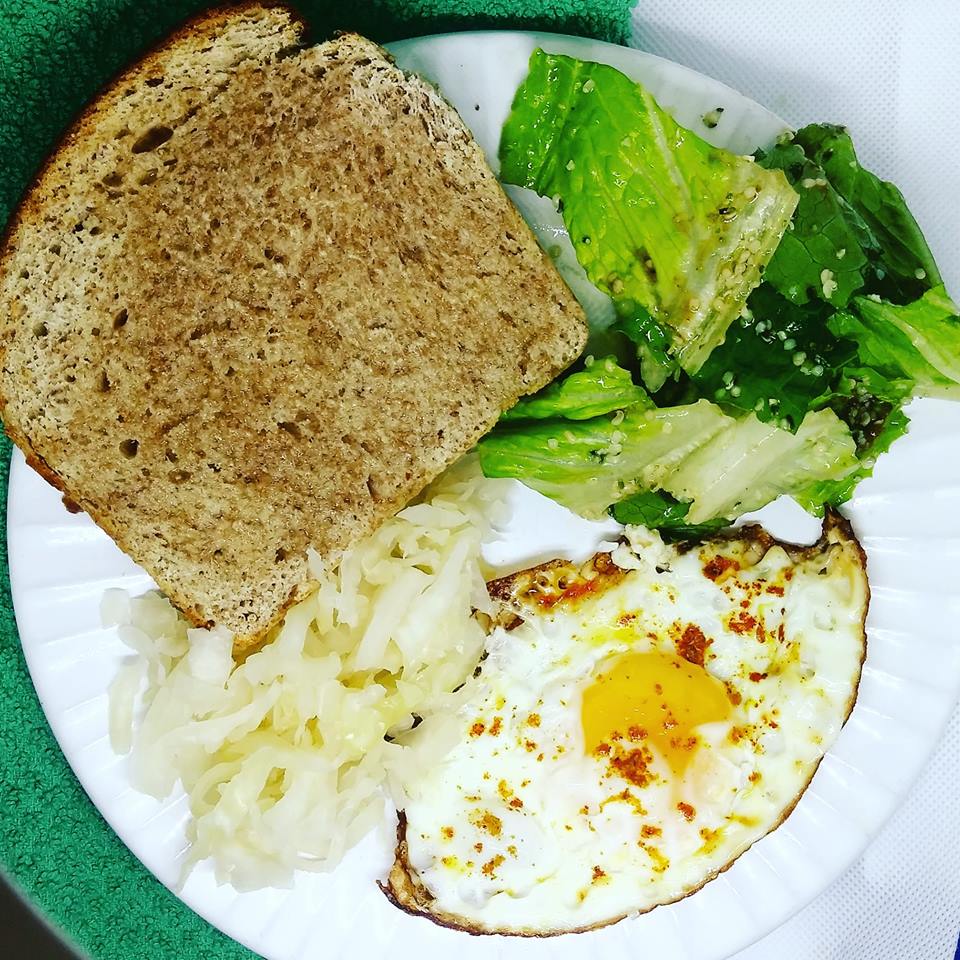How to Make Your Own Sauerkraut!

To be honest, I am no professional when it comes to making sauerkraut. However, I do love it and make it about once a month.
I have found that since I am not the professional, I will connect you with some one who is!!! And so this is why I am sending you to the cultures for health blog 🙂 They are masters at sauerkraut making (and all ferments for that matter) and I highly recommend following their simple process for delicious and nutritious sauerkraut!
Side note: If you end up not having enough liquid / brine after massaging your sauerkraut, make your own brine.
“To Make a 2% Brine: Dissolve 1 tablespoon fine sea salt in 4 cups non-chlorinated water. If you don’t use all of the brine for this recipe, it will keep indefinitely in the fridge. Cover the exposed cabbage with brine, leaving 1″ of headspace at the top.”

This is how I store my sauerkraut for 14 days. I keep it in these jars, in a cold dark space (in my antry).
The one on the left, I took the weight out and have kept in the fridge. The one on the right has the weight in it still. I used a mesh bag (not cloth) and some marbles (cleaned) as weights). Use whatever you have on hand or order from amazon.

This is how it looks when it is ready to eat. See all the brine (juice) in there! That’s what you want!
What are the Health Benefits of Sauerkraut?
When cabbage is added to salt and broken down, it begins a fermentation process. Sauerkraut fermentation creates conditions that promote the growth of beneficial probiotics, which are also found in products like yogurt and kefir (1). Probiotics are bacteria that provide powerful health benefits. They also help make foods more digestible, which increases your gut’s ability to absorb the vitamins and minerals they contain (2, 3). This is what makes sauerkraut more nutritious than raw cabbage or coleslaw. Research also shows that probiotics help reduce gas, bloating, constipation, diarrhea and symptoms linked to Crohn’s disease and ulcerative colitis (4, 5, 6, 7).
Sauerkraut is also rich in fiber, vitamins and minerals. In addition to being a rich source of minerals, vitamins and probiotics, sauerkraut is also rich in vitamin C and iron, both of which contribute to a healthy immune system. Boosting your immune system is one of the main things we should be concerned with when it comes to choosing the foods we want to give our bodies and our families. Having a healthy immune system means we are taking preventative care for our well-being and enabling ourselves to ward off sickness.
Overall, including fermented foods into our meals increases the health of our gut flora/good bacteria, and thus increases our immune system and ability to BE healthy.

I add sauerkraut to almost all my meals!!! Including my breakfast. All you need is a tiny 1/4 cup for it to do your body good.
The Deets:
Homemade whole wheat bread I made last night with coconut oil- along side a romaine salad with homemade dressing, homemade sauerkraut and fried egg with curry & turmeric!


